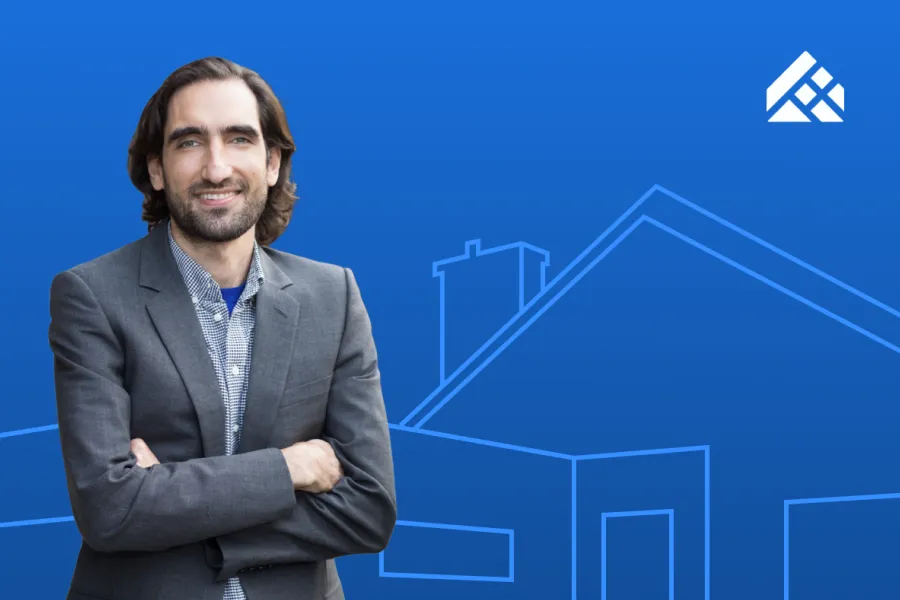
Sharing Korean Alcohol with the World
How Sool raised $124,000 in 4 hours from excited supporters
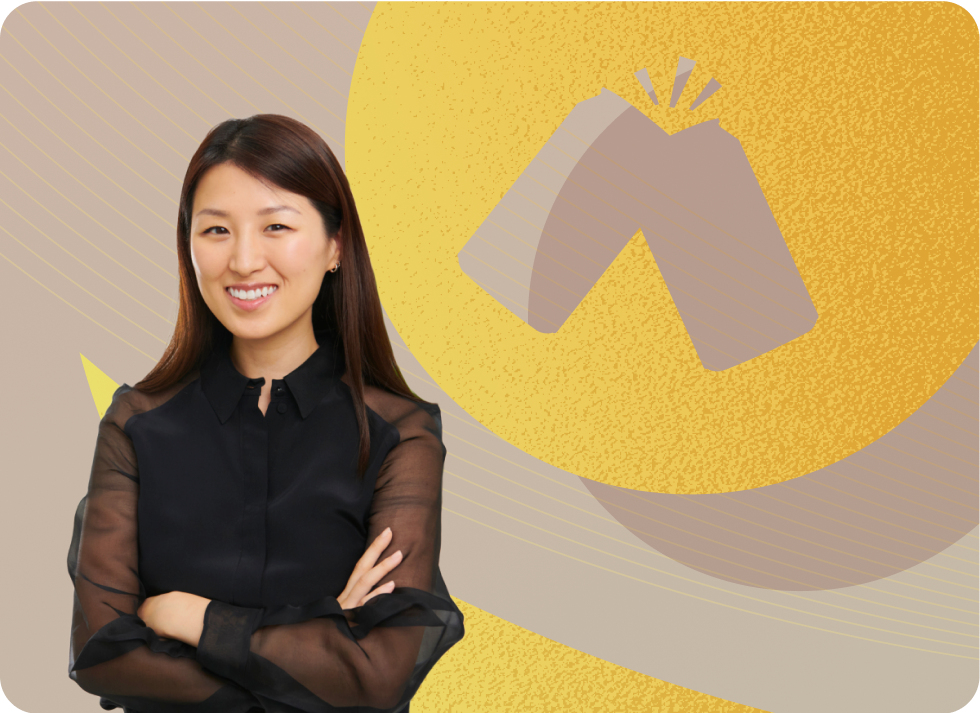
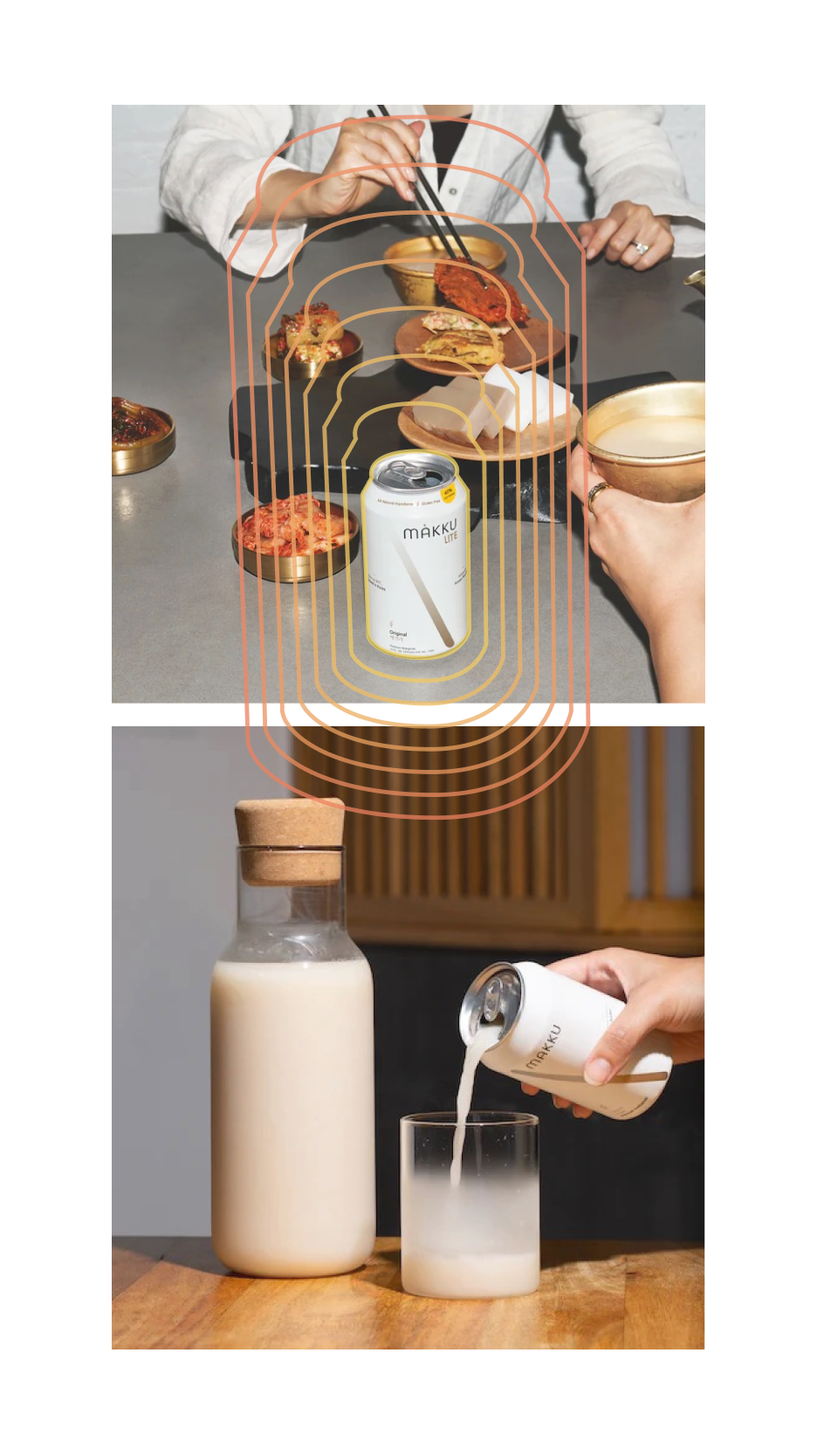
- Everyone knows that fundraising in 2022 was tough.
- After raising money on a rolling basis from angels for the better part of a year, Sool founder Carol Pak was tired.
- She thought, What if I just let my customers invest? They already know and love the product, and they understand the customer because they are the customer—they understand why people are drinking our products.
- On an impulse decision, she stood up a Community Round on Wefunder within 2 weeks and raised her whole goal in 4 hours…
- …a whole 2 months earlier than she expected.
SHARING KOREAN ALCOHOL WITH THE WORLD
We’ll have Sool Founder & CEO, Carol Pak, take it from here →
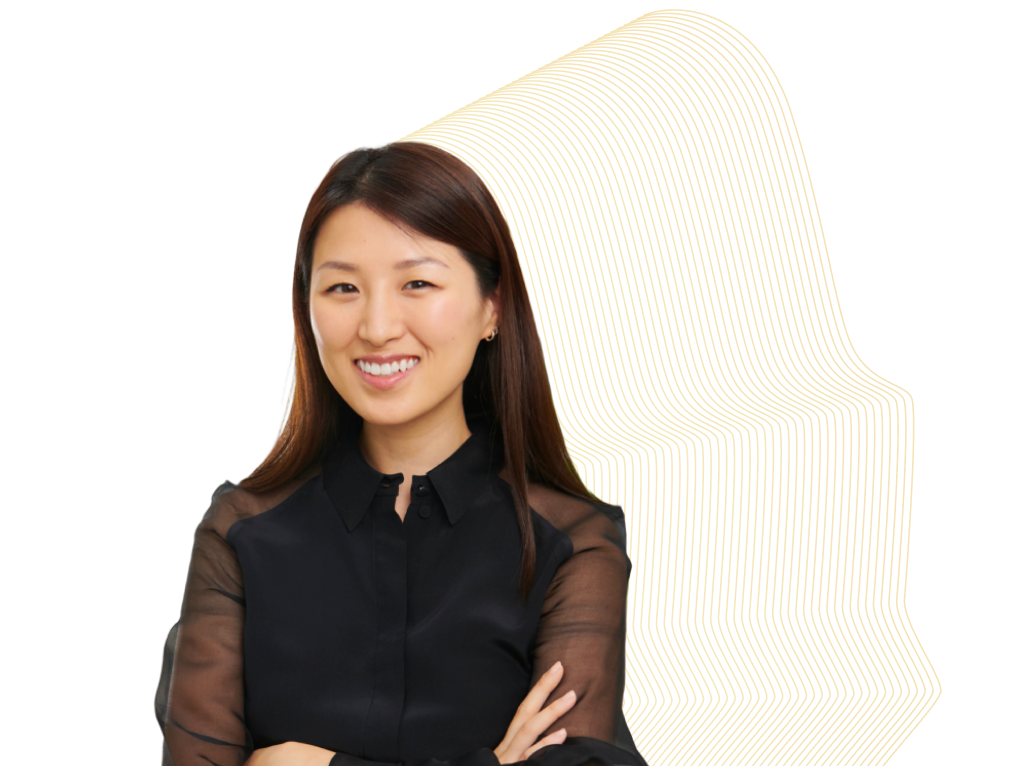
What is Sool?
Sool is an alcoholic beverage provider with a mission to share Korean alcohol with the world. The company launched in 2017 with the idea for Makkù, a modern yet authentic take on Korea’s oldest beverage, makgeolli. After launching Makkù in 2019, Sool added a second product, Soku, a ready-to-drink cocktail made with Korea’s most popular spirit, soju.
I was working in the alcohol industry when I first had the idea to start Sool. Beer was losing market share to a new wave of alternatives like hard seltzer, hard tea, canned wine, and everything in between. At the same time, I had taken a family trip to Korea and gotten hooked on makgeolli.
Slightly sweet, slightly tart, and milky colored, makgeolli is Korea’s oldest drink, sometimes referred to as Korean rice wine. Lately, a younger generation in Korea has injected fresh energy into the millennia-old craft of brewing makgeolli.
They’ve formed a passionate community around the drink and launched products that they feel are more true to traditional makgeolli, made with steamed rice and fermented with nuruk (a fermentation starter native to Korea). With that, the number of makgeolli breweries, brands, and bars in Korea have exploded in the last decade.
Korean culture is so impactful around the world, whether it’s through K-pop, Korean food, or K-drama. I felt like it was a great time to start a company that would shine light on Korean alcoholic beverages, starting with makgeolli.
I called several hundred breweries, wineries, cideries, and sake breweries and visited eight in person before finding a small brewery that was willing to try making our makgeolli.
Carol PakFounder & CEO of Sool
How Sool got started
Our first year in 2017 was all about brewing with my mom, sampling with friends, and trying to figure out the recipe.
Then I spent a year searching for a US brewery that could make makgeolli. This was extremely difficult—our formula called for a cross between sake brewing and beer brewing, and no one had the equipment, licensing and expertise to produce our recipe. I called several hundred breweries, wineries, cideries, and sake breweries and visited eight in person before finding a small brewery that was willing to try making our makgeolli.
To fund the first production run, I raised $20,000 on Kickstarter. That community round allowed us to test our recipe at scale, test our product in the market, get into a few accounts, and ultimately raise a pre-seed round in April 2019.
In the summer of 2019, I went to Korea to look for a makgeolli brewery that would enable us to scale our operations. By September 2019, we received our first container of Makkù cans straight from the motherland. That’s when our sales journey began.
We picked up our first two distributors in January 2020, started to see a steady growth in sales and number of accounts, and continued on our journey of introducing makgeolli to the US.
Our customers understand our mission. They’ve also tried the product and love it—they’re not wondering who drinks this product and why. For them, the rationale to invest is simple.
Carol PakFounder & CEO of Sool
Why did people invest?
Why we decided to raise a Community Round
When COVID hit in March 2020, our business was affected dramatically. 95% of our sales at that time were coming from restaurant accounts in NY and LA, which closed temporarily by government mandate in Q2 2020.
Additionally, as an import product, we had to deal with skyrocketing freight costs, major freight delays, port congestion, a shortage of warehouse workers and drivers, and a shortage of supplies and ingredients—continuously over the course of 2.5 years.
Due to compressed margins and inventory shortages, our ability to focus on growth was impeded and overshadowed by a constant need to raise capital to stay afloat.
While we were fortunate enough to have raised a few rounds of funding over the years, it’s become an increasingly difficult environment for capital raising, and as a founder, I started feeling distracted, discouraged, and drained from the constant activities of fundraising. If our revenue projections came to fruition, we could become profitable and self-sustaining in 2023, but we needed just a bit more capital to get through 2022.
Crowdfunding had crossed my mind before, but I was unsure about sharing private company information, and I was nervous about letting people down if they invested in me and then failing. But finally, I had a lot more confidence in what we’re building.
Ultimately, deciding to open a community round was an impulsive decision. A couple of my founder friends were talking about crowdfunding, and I thought, “Maybe I should try that too.”
While we don’t have the strongest distribution or audience yet, we have a strong and engaged customer base. Our customers understand our mission. They see our small-yet-dedicated team behind the scenes. They see that we’re trying to build makgeolli as a category. They’ve also tried the product and love it—they're not wondering who drinks this product and why. For them, the rationale to invest is simple.
At the end of the day, I would much rather let my loyal customers invest than build this story for strangers over and over again.
At the end of the day, I would much rather let my loyal customers invest than build this story for strangers over and over again.
Carol PakFounder & CEO of Sool
How the Community Round went
I made the decision, reached out to Wefunder, and had my campaign up in two weeks.
We set our goal at $124,000. My only regret is that we didn't have reviewed financials at the time of launch, so we could only set it to a maximum of $124,000—otherwise we would have aimed for $200,000.
We sent out three emails leading up to the campaign, and then we posted about it three times on social media.
Based on my past Kickstarter experience, I planned to reach the goal in 2 months. I didn’t think it would fill up in just 4 hours.
I didn’t think it would fill up in just 4 hours.
Carol PakFounder & CEO of Sool
The most surprising thing about the Community Round
We knew that we had a strong, loyal community base, but the sheer amount of support that came in—via actual dollars—was a huge surprise.
I personally knew about 95% of my donors on Kickstarter. With Wefunder, I recognized less than 20% of my investors, either from my personal network, or as loyal customers that I’ve engaged with through our events, emails, and social media messages. This meant we had a lot more people rooting for us than I’d even known.
The cherry on top? Although we were capped at $124K, we ended up attracting new angel investors and raising larger checks outside of the platform.
What community means to Sool
As a young brand, we’re still cultivating our community, and eventually would love to be a platform that encourages social connections, cultural education, and understanding. For now, our community is made up of anyone who’s been following our journey and finds meaning in what we’re building.
As a founder, I’ve always been transparent about the ups and downs of building Sool; some people are interested in that. Others have an emotional connection to our mission. Maybe they’re Asian, maybe they’re female, maybe they love that this AAPI company is diversifying aisles or maybe they just love our products..
We have limited resources and we don’t have the best content or reach—but I do think that because our products and content are authentic, people are invested in our success.
Sool has always been word-of-mouth driven. In our surveys, many have shared that they love to buy Makkù because they’re proud to share new things with their friends. It helps us that alcohol is inherently social—you buy it for your home and share with guests or family. You bring it to share at picnics, dinners and parties.
As a consumer goods company, consumer (especially customer) feedback is invaluable. Now, with the addition of 150 new investors on our cap table, we have an even larger community of customers and investors to get honest feedback from—as well as evangelize our brand and company mission.
Summary
Sool raised $124,000 from 157 investors during their Wefunder Community Round.
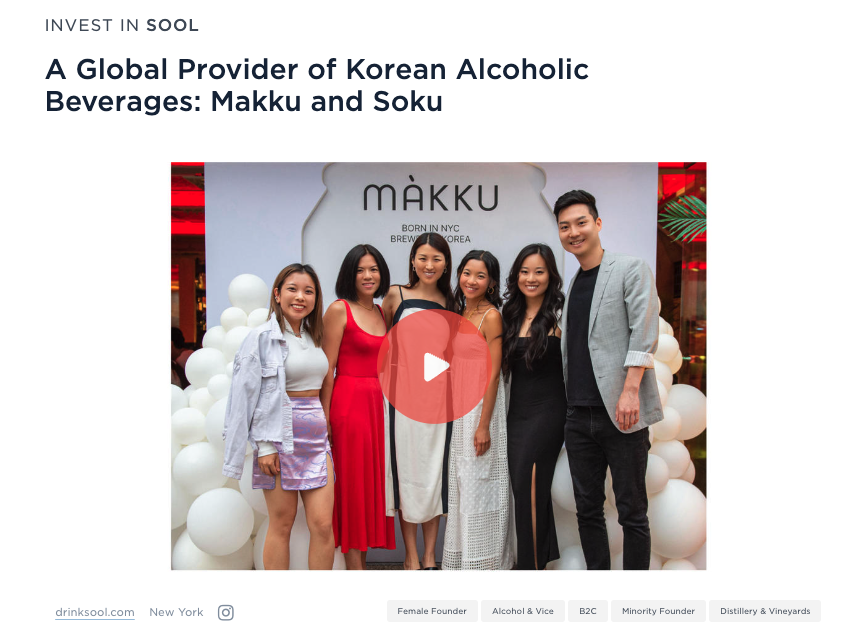
Snapshot of Sool's Community Round (source wefunder.com/sool)
The Raise
- Raised $124,000 from 157 investors
- Started and finished raise in 4 hours
- Raised on top of a $1.2 million bridge round from institutional investors














